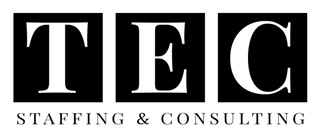How Staffing Agencies Help Employers and Job Seekers
Demystifying Staffing Agencies: How They Help Employers and Job Seekers
Staffing agencies work hard to connect employers with qualified temporary or permanent employees across various industries. The staffing industry as a whole has tripled in size over the last 20 years and is now estimated to be a $150 billion market. This significant growth highlights the increasing labor shortages, aging workforce, and the need for flexibility, which have led to a rising demand for staffing services.
Staffing agencies offer various services catering to all industries and job types. Their tasks include recruiting, screening, background checking, and
onboarding employees for client companies. Some agencies specialize in temporary staffing, while others focus on
direct hiring and permanent placement. Niche agencies concentrate on healthcare, technology, accounting, or manufacturing industries.
Types of Staffing Agencies
There are several categories of staffing agencies, each catering to distinct workforce demands. Permanent placement agencies specialize in matching candidates with direct-hire positions at companies. They function as recruiters, sourcing passive candidates already employed elsewhere.
On the other hand,
temporary staffing agencies offer workers to clients on a time-limited basis, usually for hourly or per-project fees. This affords a high degree of staffing flexibility, such as the ability to ramp up during peak seasons. Temporary workers may be employed directly by the agency. Project-based agencies, meanwhile, satisfy talent requisites for a specific project with a clearly defined timeline, such as six months.
These positions may be temporary or
temp-to-perm. Specialty vertical agencies, lastly, concentrate their expertise and vast candidate networks in a professional niche, such as engineering, IT, finance, healthcare, or construction. These agencies develop an in-depth understanding of their industry's hiring requirements.
Comprehensive Services Provided by Staffing Agencies
Staffing agencies offer a variety of services related to hiring and managing employees. These services include recruiting, vetting, onboarding, compliance, payroll and benefits, and flexibility.
Recruiting involves creating job descriptions, posting them on various platforms, and finding qualified candidates through advertising and networking efforts.
Vetting is the process of thoroughly screening potential employees before hiring. Staffing agencies conduct interviews, skills testing, multiple reference checks, and other pre-employment assessments.
Onboarding involves conducting extensive background checks, drug testing, and paperwork handling. Staffing agencies also organize orientation and training sessions for new hires.
Compliance is essential to prevent co-employment risks. Staffing agencies ensure workers are appropriately classified as W-2 or 1099 and manage legal compliance.
Payroll and benefits administration is another service offered by some staffing agencies. They handle payroll, taxes, workers' compensation, and benefits administration, relieving clients of these burdens.
Finally, staffing agencies offer flexibility by allowing clients to adjust the number of workers based on business needs. This will enable clients to scale up or down as required.
Numerous Benefits for Employers
Staffing agencies offer significant benefits for businesses looking for talented employees. They provide access to pre-screened, highly qualified candidates across various fields, which can be challenging to find otherwise. Additionally, staffing agencies can reduce the time to fill open positions from months to days or weeks.
Temporary staffing also allows employers to evaluate workers before hiring them permanently, reducing the chances of making bad hires. Staffing agencies offer flexibility and scalability, allowing businesses to adjust their labor needs quickly and efficiently, depending on the market's fluctuations.
Hiring through staffing agencies eliminates the extensive costs associated with high-volume recruitment and HR administration, freeing up client resources. Moreover, staffing provides vital HR infrastructure for small companies, allowing them to focus on their primary competencies.
Numerous Benefits for Job Seekers
Staffing agencies offer a host of benefits to job seekers. Among these benefits are:
- Greater Exposure to Opportunities: Staffing agencies provide job seekers access to various companies and roles. This enables job seekers to explore various possibilities and significantly expands their options.
- Superior Job Matching: Staffing agencies develop an in-depth understanding of their candidates over time and can match talent with employers more effectively. This results in a better fit and greater job satisfaction.
- Enhanced Skill Development: Temporary assignments provided by staffing agencies allow workers to rapidly acquire new technical skills and experience in high demand in the job market. This can lead to better job offers and improved long-term career prospects.
- Increased Flexibility: Job seekers have the flexibility to pursue temporary assignments alongside or between permanent roles, which provides them with income flexibility and the opportunity to gain experience in new areas.
- Comprehensive Assistance: Staffing agencies guide candidates through all aspects of new employment, including paperwork, legal compliance, and thorough onboarding. This ensures a seamless transition into their new role and prepares them for success.
Major Trends Impacting the Staffing Industry
Several significant trends are shaping the staffing sector. One such trend is the Gig Economy. Work is shifting, leading to exponential growth in temporary and contract roles. Staffing agencies are capitalizing on this growth, which has become a significant source of revenue for them.
There currently needs to be more skilled workers due to the retirement of baby boomers, which has created a talent gap across many industries. Staffing agencies are crucial in helping employers fill these gaps.
Finally, employers now prioritize soft skills like communication, problem-solving, and emotional intelligence. Staffing agencies heavily prioritize screening for these traits, recognizing that cultural fit and soft skills are crucial to success in today's workplace.
Final Thoughts
Staffing agencies have undoubtedly become one of the most vital components of today's dynamic and fast-paced job market. For employers, staffing services allow exponentially faster hiring, greater workforce scalability, and access to skilled talent, even in highly challenging hiring environments.
Job seekers can heavily leverage staffing agencies to find the best opportunities, gain valuable exposure and experience, and benefit from end-to-end placement services. As the global workforce continues rapidly evolving, staffing agencies will only grow in their indispensable role at the heart of the labor ecosystem.
Contact our team today to learn more about how we can help you find the right employee or find your dream job!






